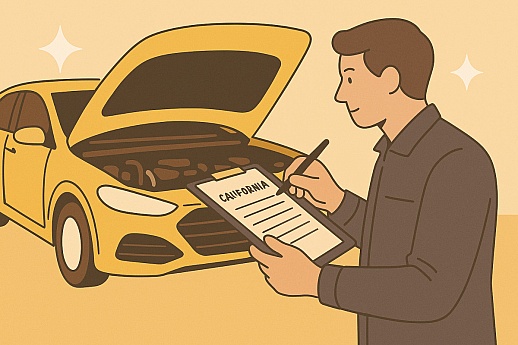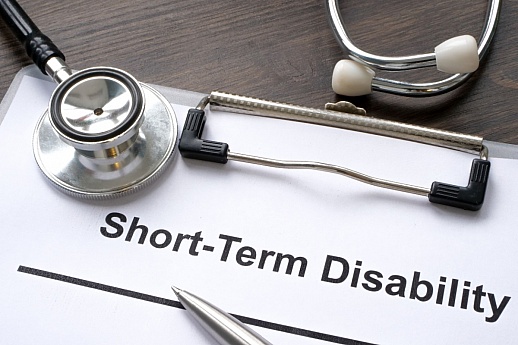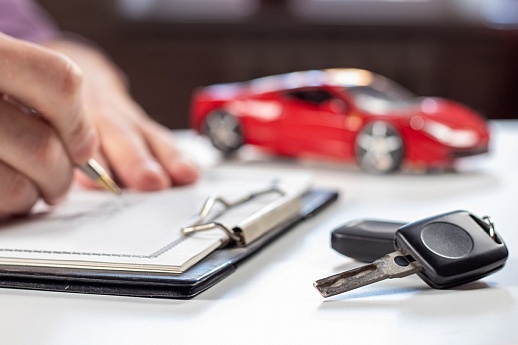Why Is My Car Shaking When Driving? Top 5 Reasons Your Car Is Vibrating
Feeling your car shake when driving? This can be unsettling, and for the right reasons. Unusual vibrations often indicate underlying issues that need immediate attention. Not only do they affect your comfort, but they could also compromise your safety on the road.

Let’s explore the top five reasons why your car is vibrating.
What Causes a Car to Shake? 5 Common Reasons
Shaking is a common issue that many drivers experience, regardless of whether they’re driving a conventional, electric, or hybrid car. When you first notice your car shaking abnormally, pay attention to the circumstances. Does the shaking worsen when you increase speed? Do you feel it through the steering wheel or the seat? Does it continue vibrating when you’ve stopped with the engine still running?
Note when the shaking occurs, as it will help mechanics diagnose the issue faster. In any case, these are the main causes of a shaking car.
1. Unbalanced or Damaged Tires
When tires aren’t balanced correctly, they can cause the car to shake, especially at higher speeds. Unbalanced tires create uneven rotation, which can lead to vibrations you feel in the steering wheel or through the entire vehicle.
Shaking may also result from uneven tire wear, separated tire tread, out-of-round tires, and even loose lug nuts. Bulges and flat spots can also lead to vibrations, so make sure to include your tires as part of your regular vehicle maintenance checks.
2. Misaligned Wheels
The other common issue could stem from the wheels themselves. Wheel alignment ensures that your vehicle’s wheels are set to the optimal position per the manufacturer’s specifications. Misalignment usually occurs after hitting potholes or curbs. As a result, driving with a misaligned wheel can cause the car to pull to one side and the steering wheel to shake.
3. Suspension Issues
Worn suspension components like shocks and struts can lead to an unstable ride. A faulty suspension fails to absorb road impacts, transmitting vibrations to the cabin. This can cause your vehicle to shake.
4. Worn Brake Rotors
Over time, heat and wear can cause brake rotors to warp, leading to vibrations when braking. If you notice shaking when applying the brakes, worn or warped brake rotors might be the culprit. Warped rotors cause the brake pads to grip inconsistently, resulting in a shaking sensation.
5. Faulty Spark Plugs
Faulty spark plugs can cause engine misfires, leading to your car shaking. Misfires disrupt the engine’s combustion process, causing vibrations that can be felt throughout the vehicle.
If this ends up being the problem, don’t blame yourself for not catching it. Modern sparkplugs can last up to 100,000 miles, so you aren’t expected to check them very often. Still, if your car is shaking, it may be an area for the mechanic to investigate.
Note: There are other reasons why a car shakes. Other frequent causes include damaged CV joints, driveshaft issues, or worn engine mounts. No matter what the reason, it’s best to get your shaking car to a professional mechanic sooner rather than later.
Why Is My Car Shaking When Parked?
Possible causes of the car shaking when parked include:
- Bad spark plugs
- Damaged engine mounts
- Faulty idle air control valve
- Dirty or worn fuel injectors
- A worn throttle sensor
An uneven idle due to engine misfires or vacuum leaks can cause noticeable shaking when the car is parked. You should consult a mechanic promptly to avoid potential hazards or accidents.
Is It Safe to Drive When Your Car Is Shaking?
If you experience persistent shaking and don’t know its root cause, it’s not safe to continue driving. You should immediately take your vehicle for inspection to determine whether it’s safe to drive or requires repair.
Vibrations may indicate serious problems that can potentially lead to accidents or mechanical breakdowns. Shaking due to tire issues can lead to blowouts or loss of control at high speeds. If you experience a shaking in your vehicle that can threaten your driving safety, contact a reputable mechanic as soon as possible.
Is Car Shaking a Transmission Problem?
While not always the case, car shaking can result from a damaged transmission. The transmission transfers power from the engine to the wheels, and any malfunction within this system can lead to vibrations. Transmission-related vibrations often occur during gear shifts or acceleration.
In automatic vehicles, the torque converter allows the transmission to shift gears smoothly. If it’s malfunctioning, you might experience shaking, particularly between 30 and 45 mph. For vehicles with manual transmissions, a worn-out or damaged clutch can cause the car to shake when changing gears.
Why Does My Car Shake When I Accelerate?
Vibration during acceleration can be due to several factors, including damaged CV joints, worn spark plugs, engine misfires, or transmission issues. Acceleration places additional stress on drivetrain components, and any weakness can manifest as vibrations.
Conclusion
From impaired tires to serious engine problems, there are a number of reasons why you might experience car shaking when driving. You won’t know for sure until you take your vehicle to a professional inspection. Any unusual vehicle behavior should be addressed promptly to prevent further complications and maintain road safety.



